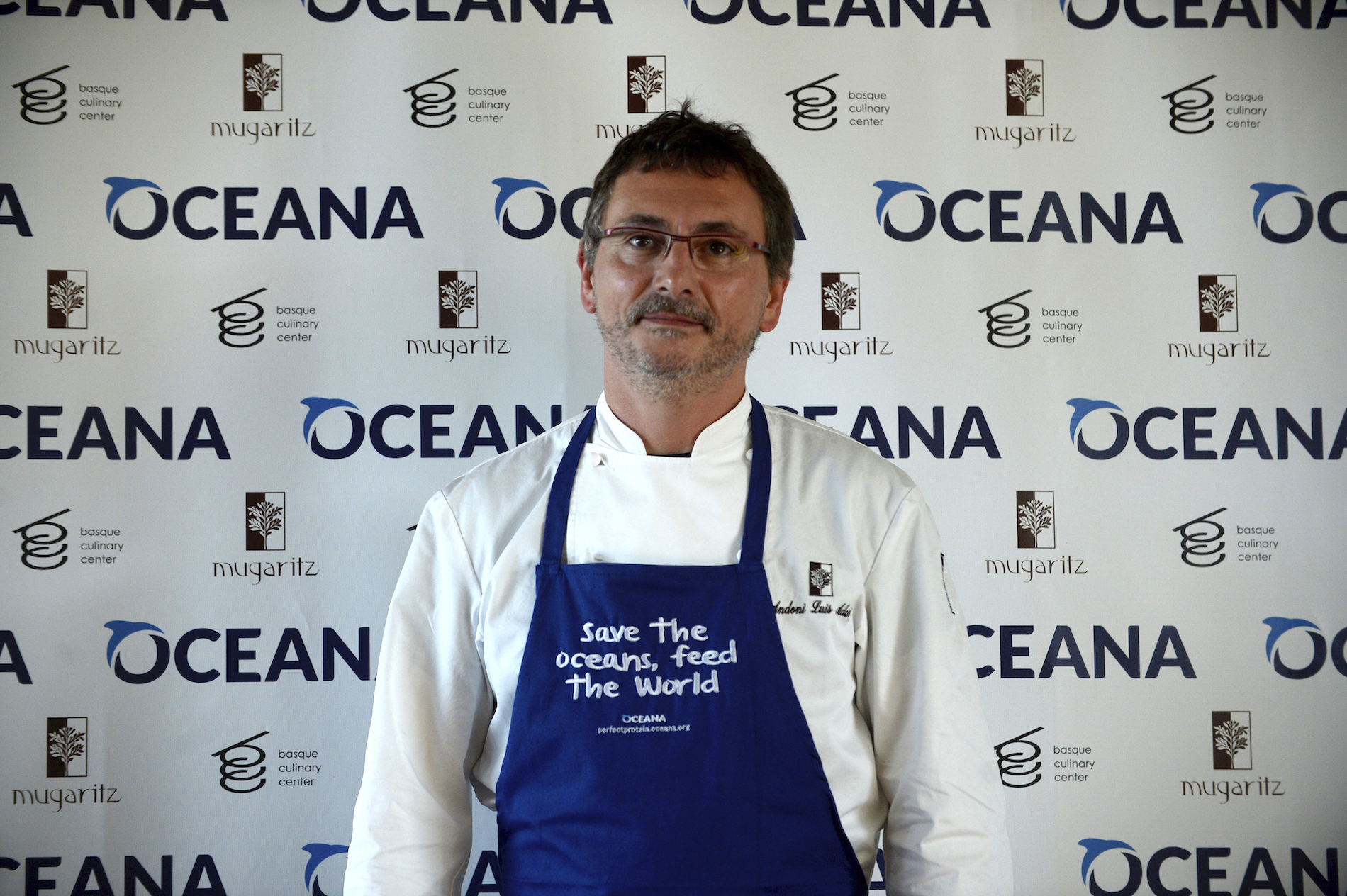By Belén Carreño and Silvio Castellanos | Photo by Vincent West/Reuters
ERRENTERIA, Spain (Reuters) – Michelin star chef Andoni Luis Aduriz doesn’t run a restaurant. Mugaritz, the eatery he founded in 1998, has outgrown that label to become a laboratory that designs astronaut food and pushes customers out of their comfort zones, as well as feeding them.
From an old Basque farmhouse in the shade of an oak tree after which the eatery is named—Aritz means oak in Basque— Aduriz has shaken up the restaurant world and garnered a steady stream of awards but also criticism for his treatment of flavor.
“Some people seem to think that smell and taste are the most important factor,” Aduriz said at a session released on Thursday at the Reuters Next conference. “We are convinced that textures are at least as important, if not more,” he added.
Over a 20-course set menu, customers encounter unexpected flavors, ingredients, and sensations and are invited to play with the food between their fingers, embracing what Aduriz calls “the discomfort of the poetic.”
“Mugaritz is a non-algorithm. It does not give you what you like, it gives you what you might like … After all, our mouths give us the opportunity to eat the world.”
At one point, diners must suck out edible flowers from sculpted ceramic faces.
Aduriz is also formulating the perfect meal for passengers who will sail through space in commercial spaceships.
“We are talking about… people who are going to travel up into space… and who will want to eat well. The gastronomy-pleasure-hedonism factor will be present,” he said, as would-be astronauts savor his offering of two freeze-dried mousses.
In a future imagined by Aduriz, sustainability is crucial, as is serving healthy food. By resurrecting ancient preparation techniques such as fermentation, he aims to strike such a balance.
However, his creative team strives to escape the prescriptive elements of artificial intelligence and avoid the safe option of giving customers a familiar, comfortable experience.
“Mugaritz is a non-algorithm. It does not give you what you like, it gives you what you might like … After all, our mouths give us the opportunity to eat the world.”
(Reporting by Belén Carreño, Silvio Castellanos and Raúl Cadenas; Editing by Nick Zieminski)
Watch more here:





